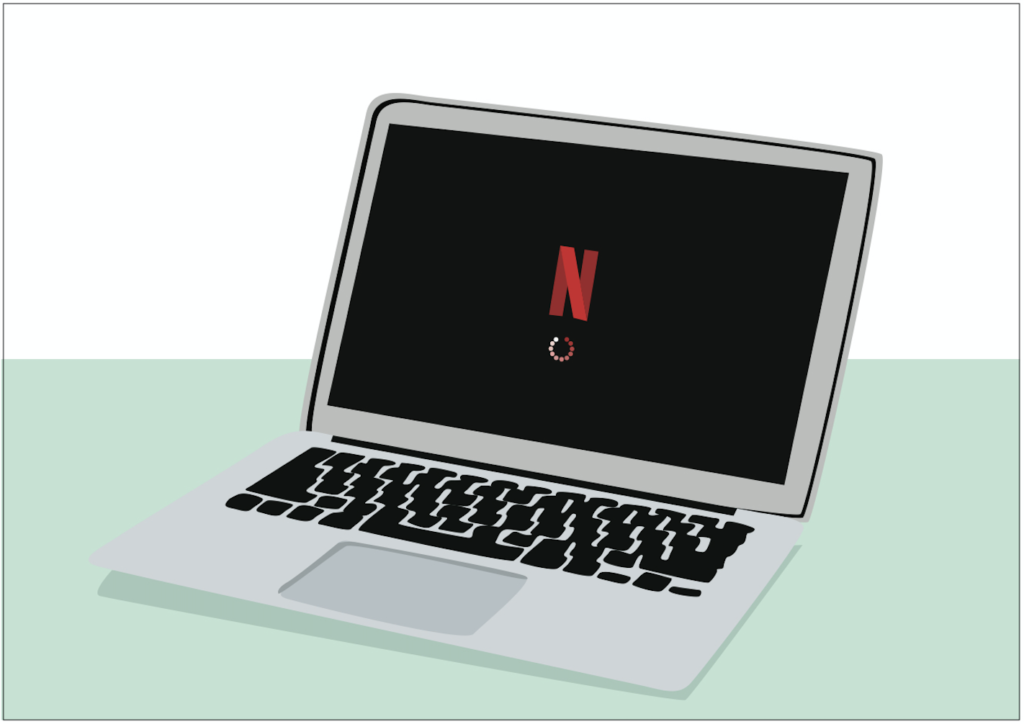By Mohit Puvvala, lifestyle columnist
I watched Duncan Jones’ new movie “Mute” last weekend from the comfort of my room. While I might have skipped the film if I couldn’t have watched it on Netflix, I couldn’t help but feel like I was cheating Jones. Netflix is inherently a non-theatrical experience, and forgive me if I sound like a stuck-up old soul, but I believe there’s something magical about watching a film in theatres. I find seeing a big and visually impressive film more forgettable on a tiny screen. I’m not calling “Mute” a bad movie, as that’s a topic for another day, but I think immediately relegating the film to a direct-to-DVD flick was wrong. If you asked Jones — who has his fair share of big releases with “Source Code” and “Warcraft” — whether he preferred a Netflix or theatrical release, I’m sure he would choose the latter option. But therein lies the question: Why didn’t “Mute” go to theaters? The film had everything going for it — a notable director, great visuals, an amazing cast and most importantly, Paul Rudd’s incredible mustache.
What Happened?
Here’s what I think: Production company Liberty Films probably had difficulty finding a distributor who would risk a return on investment considering the film’s budget, which I’d estimate to be around $40 million. The visuals were the best part of “Mute.” But a lot of the effects was practical and utilized lighting techniques to help the company reduce the amount of computer-generated imagery, or CGI, creating an optimal medium budget. Small budgets go from $1-20 million, medium budgets are $20-$50 million, anything higher is big and tentpole blockbusters like Marvel or Star Wars are $100 million plus.
Typically, with the added marketing costs from a distributor, a film needs to earn at least two and a half times its original production budget to be considered financially successful. This means that “Mute” would have to earn around $100 million worldwide to turn a profit. Historically, it’s been pretty difficult for small R-rated sci-fi productions to make that much. For example, last year’s $58 million budget film “Life” barely made over $100 million despite its all-star cast including Harrison Ford and Ryan Gosling. “Blade Runner 2049” made $259 million from a $150 million production budget, and that’s definitely not a profit. Even if the film is acclaimed like “2049,” there’s no guarantee people will see it. From the studio’s perspective, “Mute” was a financial risk.
Enter Netflix
Recently, Netflix has become the knight in shining armor for production companies that couldn’t find theatrical distributions for their films. If Netflix offered Liberty Films the exact budget amount of “Mute,” then any reasonable businessman would take the offer in a heartbeat. It would ensure that Jones’ film reached a wider audience. The film was sold to Netflix and Jones’ Twitter account fronted the a vocal marketing campaign. This probably means that marketing the film was inexpensive and ultimately had a quiet release on Netflix.
Regardless of what I or anyone else thought of the final product, it’s hard not to see this production as a sad story. Jones supposedly spent fifteen years on “Mute.” It’s disappointing to see him put this much passion into a film only for it to bomb. I guess that’s the staple tragedy in Hollywood, but Netflix masks the reality of these situations by plastering its logo on promotional posters and featuring it on their front page for a few days. Jones seems to be focusing on the bright side that Netflix allows for full creative freedom, which means that “Mute” wasn’t cut to meet theatrical standards and maximize profits. Either way, “Mute” was immediately crushed by critics and audiences alike. Its Netflix release was met with a quick death.
It’s Happened Before
This isn’t the only time this type of thing has happened. Netflix is slowly becoming a place for medium-budget films to live in. Studios aren’t confident that some of these movies will produce the results they need, so to avoid risk they cut their losses and settle with Netflix. The exact same thing happened to “The Cloverfield Paradox,” a $45 million production that had a surprise release on Netflix after Paramount Pictures believed the film was “unsalvageable.” Granted, “The Cloverfield Paradox” wasn’t well received upon its Netflix release, but we’re seeing a similar treatment with these movies to what we see with direct-to-video films. Many don’t consider Netflix movies as legitimate cinematic experiences when, in fact, many were almost released in theaters.
What Production Companies Will Do Going Forward
It’s hard to see why production companies would take the risk of a medium budget movie in the first place. It’s not like a studio was ever going to give “Mute” a budget of $100 million, because it would never make the $250 million it needed to be a monetary success. Liberty Films also couldn’t give “Mute” the reported $5 million budget they gave “Moon” because Jones wouldn’t be able to hire the same cast and set it in futuristic Berlin. Given the average budget film has been recently unsuccessful in the age of Disney spectacles and expensive cinematic universes, why would studios ever take the risk of producing a mid-range budget sci-fi film?
I think that these medium budget films aren’t going to be released in theatres anymore and will either find their place in streaming platforms or simply never be produced at all. Studios are going to sell to a streaming platform to make quick bucks off their productions that have already been in years of development. After the stack of medium budget films currently in production is sold, you can bet studios will stop producing those movies.
Another big example of Netflix changing release strategies is Alex Garland’s new movie “Annihilation.” Garland was in a similar situation to Jones and Julius Onah, the director of “The Cloverfield Paradox.” “Annihilation” had a $40 million budget, a great cast starring Natalie Portman and Tessa Thompson and an R-rating with horror-esque themes.
Sound familiar? Guess which company bought the international rights to the film? Netflix. While Garland, an Academy Award nominated screenwriter, has proven himself to be a competent filmmaker and “Annihilation” has received wonderful praise from both critics and audiences alike, the film has only received a stateside release. Internationally, the film will premiere on Netflix on March 12. Paramount supposedly sold the film to Netflix because studio executives feared the film would be too hard for audiences to understand. It’s easy to see why studios can pull away from this type of film because they’re risky and, while greater risk yields greater reward, the risk can now be averted when you just sell to Netflix and break even.
The Bigger Picture for Netflix
We understand now why production companies are selling, but why would Netflix, the overwhelming leader in streaming, shell out hundreds of millions of dollars for all these movies? With the announcement that Disney and Apple are creating their own untitled streaming platforms, the impending streaming war has begun to loom over Hollywood. Netflix is going to lose the rights to stream Disney movies such as “Captain America: Civil War,” “Doctor Strange” and “Beauty and the Beast.” If the Disney-Fox merger goes through, all the Fox movies are probably going to move from Netflix to Disney’s streaming service. Then there’s Apple, which is probably going to make exclusive partnerships with big studios soon. That evens the playing field a lot for everyone involved, including Netflix’s current major competitors: Hulu and Amazon. Suddenly, Netflix isn’t the major leader in the streaming industry. Netflix is attempting to save itself from the inevitable future competition by acquiring high profile films associated with big names. It doesn’t matter if the reviews are bad because subscribers will probably still see the movies since the Netflix subscription is a flat fee. Now, we can finally see that “Mute,” “The Cloverfield Paradox” and “Annihilation” were all caught in the crossfires of corporate struggles. In the end, it’s unlikely that there’s a real winner.















